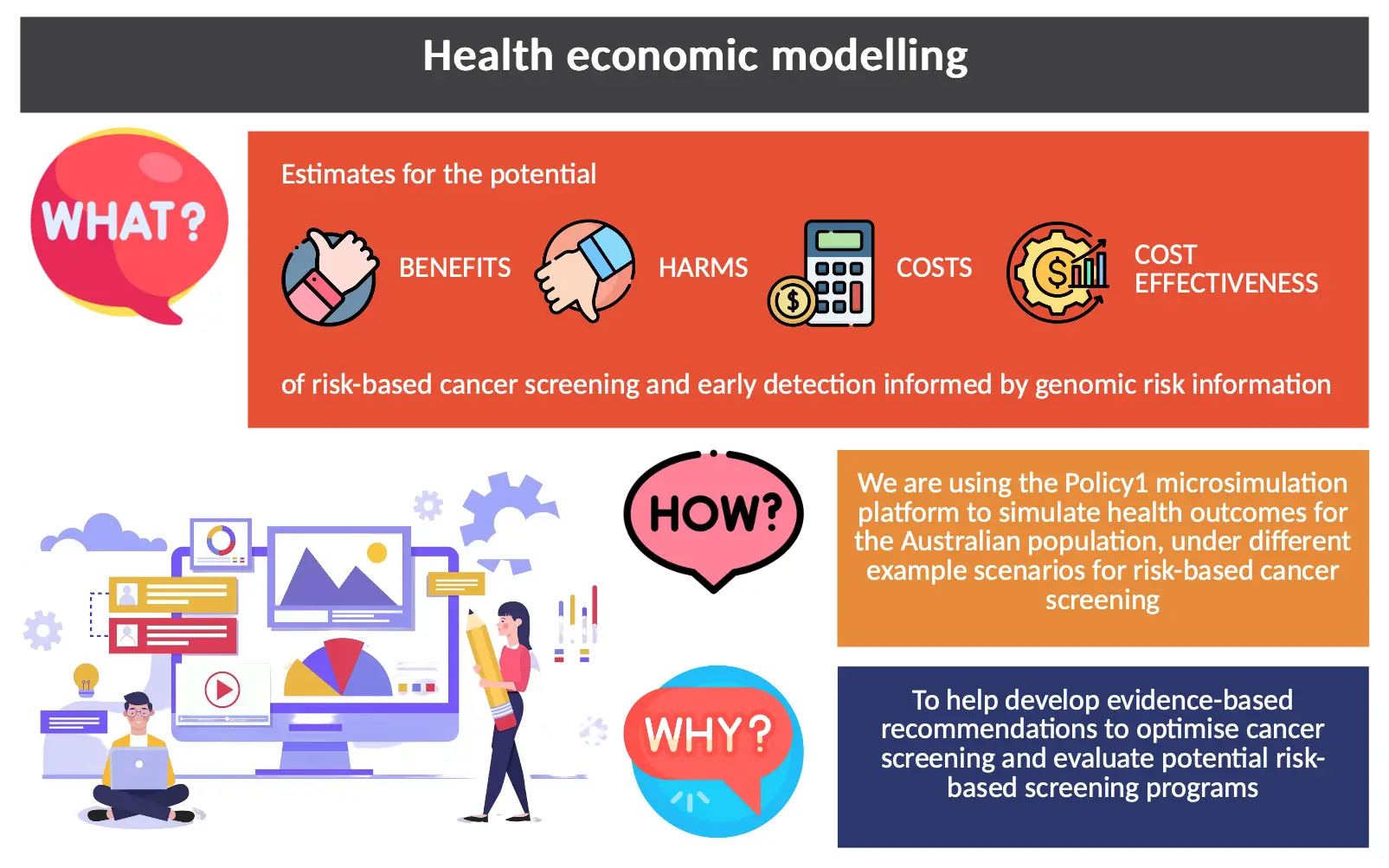To help optimise future cancer screening and health outcomes for Australians, we are examining how genomic risk predictions could support potential risk-based cancer screening. In particular, we are using Policy1, a mathematical modelling platform that can simulate life histories for millions of people under different cancer screening scenarios. As part of the Australian Cancer Risk Study, we have been extending the Policy1-Breast, Policy1-Bowel, and Policy1-Prostate models to capture differences in predicted cancer risk within the population (with upcoming work planned for Policy1-Melanoma). This work specifically leverages our research on how well genomic information can predict cancer risk in Australian cohorts. Using the enhanced Policy1 models, we are now evaluating potential health outcomes under different example scenarios for risk-based cancer screening and early detection (compared to standard strategies based on age alone).

The Policy1 modelling platform used in these evaluations is led by Prof. Karen Canfell and her team at the University of Sydney School of Public Health. The evaluations within the Australian Cancer Risk Study are highly collaborative, with different cancer-specific or cross-cancer analyses led by Dr Renan Nascimento de Almeida, Dr Joachim Worthington and Dr Han Ge, and Dr Pietro Procopio (Daffodil Centre), working closely with Prof. Karen Canfell and A/Prof. Michael Caruana (University of Sydney School of Public Health), as well as Dr Jie-Bin Lew, A/Prof. Carolyn Nickson, Prof. Anne Cust, A/Prof. Julia Steinberg (Daffodil Centre), and the wider Australian Cancer Risk Study team.